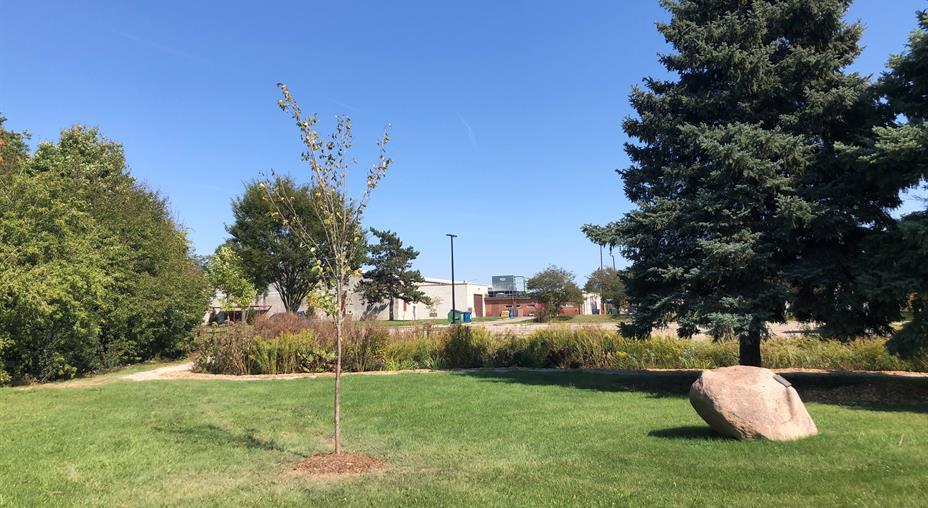We love our park trees! Our city parks are full of trees that provide food and habitat for wildlife, offer shade for visitors and add beauty.
Our goal is to ensure that trees have the best chance of thriving in their park environment. Any tree plantings or work on an existing tree must be approved by the city.
The city has many programs and initiatives to care for our urban tree canopy, both on and off park land.
Donate a Tree
Adopt-a-Park is an avenue through which the public can donate a tree to a city park. A tree can be in memory of a loved one, a celebration in honor of a local group or a other meaningful donation. The city has an approval process and detailed steps that must be followed for each tree donation. View the Adopt-a-Park
Tree Donation Guide (PDF 146 KB) to learn more and to complete the application. Reach out to
[email protected] or 734.794.6445 with questions. Our next tree planting season will be in the fall of 2024.
Important details in the tree donation process include:
- There is a $200 donation fee in addition to the cost of the tree.
- The donor is responsible for coordinating the transport and planting of the tree. Adopt-a-Park will provide the necessary support in coordinating with tree nurseries.
- The donor is responsible for watering the tree for at least two years.
- Trees must be at least 1.5" in diameter. No saplings.
Adopt-a-Park has a pre-approved
tree species list (PDF 235 KB) from which donors can select a tree to propose for approval.

Special Park Projects
Residents who are interested in proposing a special project idea that includes a tree planting can do so through Adopt-a-Park. There is a formal process for proposing a special project idea for a city park. Visit the
Proposing a Special Park Project page to learn more.
Tree Species
Adopt-a-Park Tree Species List (PDF 235 KB) serves as a reference for tree donations, special park project proposals and park adopters. The list includes information about what the tree looks like and preferred environment. Residents interested in donating a tree can choose the species and city staff will review the selection.
The tree species list can also be a reference for residents who want to propose a
Special Park Project.
Tree Pruning in Parks
Most tree species benefit from pruning. Careful pruning prevents disease, as well as improves the tree's shape.
The Parks department prunes park trees as needed and hires a contractor to address routine pruning needs each winter. This mostly entails pruning needs that result from storm damage, disease or safety concerns. Residents who see a park tree that they feel needs to be pruned or surveyed for other concerns can do so on A2Fix It.
Learn to Prune
Pruning a tree requires proper skill and a thoughtful approach. This ensures that the tree can heal and is less susceptible to infection. The City offers a winter Citizen Pruner Program for residents to learn about tree pruning. Volunteers have the chance to practice and assist with pruning street trees and park trees. The program entails a classroom session, an outdoor field training and at least one required volunteer session for practice. Visit the
Citizen Pruner page to learn more.
Champion Trees
The city has a Champion Tree program that identifies and catalogs the largest tree of each species within the city. Most of these champion trees are on private property but there are a few in city parks. Nominations continue to be accepted for prospective Champion Trees. The current list can be found on the Champion Tree Map.
10,000 Trees Initiative
Ann Arbor's
Office of Sustainability and Innovations has set a goal to plant 10,000 new trees planted on private property by 2030. This initiative is part of the city's goal to be carbon neutral by 2030. Visit the
10,000 Trees page to learn more about this initiative and the programs that they offer.
To learn more about our urban tree canopy, visit the Forestry Department's
website.
